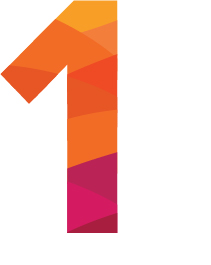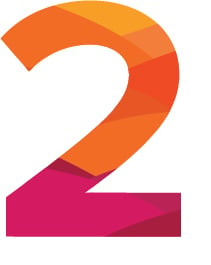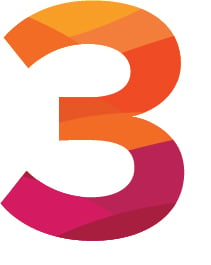7 Ways Your Behavioral Health EHR Should Support Clinician Retention
The behavioral health workforce shortage makes effective recruitment and retention crucial. While most organizations have focused on ramping up staffing efforts and reviewing compensation to be competitive, an area they often overlook is the importance of creating a successful work environment for clinicians. Insufficient technology and day-to-day disruptions in workflow can make the behavioral health clinician’s job more difficult and contribute to a culture of frustration that steers staff toward another employer of choice.
As you seek to recruit and retain top behavioral health talent, take a moment to assess the experience your organization creates with the checklist below.

Behavioral Health Clinician Workflow Support Checklist
Every “yes” answer represents a way your processes enhance behavioral health workflows and are likely boosting clinician satisfaction with your organization. Any “no” answer is a potential red flag.
 |
Does your EHR automatically create dynamic suggestions for clinical workflows?Don’t make your behavioral health team go searching for assessment forms, coding guidance, or other information necessary to complete the patient encounter. Your platform should automatically guide clinicians on the recommended next steps in their workflow rather than requiring manual searches. |
 |
When logging in for the day, do behavioral health clinicians have an instant view of what’s most important to manage their cases on their home screen rather than needing to sort through a bunch of other information?It may sound like a small thing at first, but being able to customize dashboards and facesheets is a huge daily time — and frustration — saver across the behavioral health team. No one wants to have to sort through cluttered screens where only some information might be relevant or click through multiple screens to get the information they need, particularly when there is someone in front of them waiting for treatment. Instant access to information that is personalized around the individual user’s need enables clinicians to be more efficient and spend more time engaging with clients. |
 |
When leading a telehealth visit, are clinicians able to immediately join from the same platform where their workflows are located?If your organization provides virtual services, an EHR with integrated telehealth will reduce the number of systems that clinicians must use and move between, eliminating unnecessary complexities in how they work. |
See How Our Highly Customizable Platform Can Meet Your Needs and More
 |
When managing caseloads, are clinicians and staff able to quickly identify and communicate risk?Risk management needs to be proactive. Your platform should enable clinicians and behavioral health staff to identify at a glance those clients who may be at higher risk of suicide or deviation from recommended treatment protocols. |
 |
Are medical histories, clinician notes, and treatment plans documented in an EHR with an open structure to facilitate information exchange with primary care physicians and others across the care continuum?Patient health is best supported with care collaboration regardless of treatment setting. An EHR that facilitates protected and easy information exchange will minimize time that clinicians and other behavioral health staff need to take away from their immediate tasks to address queries with other care providers. EHRs and other software that use an “open API” make programming these data integrations easier, thereby minimizing the likelihood of your organization ending up with siloed information. |
 |
Are you able to easily measure outcomes and compare performance at the physician and service line level?Clinicians want to be able to track care progress and identify at the earliest when interventions may be needed. The tracking of outcomes provides means for these insights and facilitates measurement-based care. And by viewing outcome trends at a physician and service line level, practice leaders can identify best practices to improve clinical and financial performance. Clinicians want to work for an organization that strives for and communicates successes. Ready access to outcomes data and analytics helps foster this culture of continuous improvement. |
 |
Does your EHR enable clinicians to personalize workflows and dashboards around their preferences?Success in behavioral health treatment is highly dependent on the clinician’s ability to deliver personalized care. Clinicians have their own preferences in looking at the treatment process and developing systems that enable them to work most effectively with patients. Features such as “favorites,” shortcuts, and process-driven context menus are important for creating an optimized experience that enables clinicians to work in the way that is most natural to them in accordance with their training and experience. A cookie-cutter experience inherently keeps clinicians from performing at their best and feeling satisfied with their role in the care environment. |
How has your organization scored? Clinicians who have a positive experience using an organization’s EHR — and do not experience challenges and frustrations with a platform — are more likely to remain with an organization. The right EHR can help behavioral health clinicians better support their clients by providing more personalized services and maximizing the time they have available to meet with clients.
If you’ve completed this checklist and are worried that your platform is hindering your clinician retention efforts, don’t fret. At Core Solutions, we’ve built our EHR with a focus on the behavioral health clinician experience. The Core Cx360 EHR Platform empowers clinicians and their organizations to do more for clients with less work, simplifying complex processes and making it easier to deliver, document, and bill for services.
Want to learn how we are helping organizations like yours make their EHR a clinician retaining solution? Request a demo of Core Cx360 V7.5 — the most powerful and intuitive behavioral health EHR on the market today.
Download the PDF Version!
Take a moment to assess the experience your organization creates with this important checklist examining common workflow best practices.